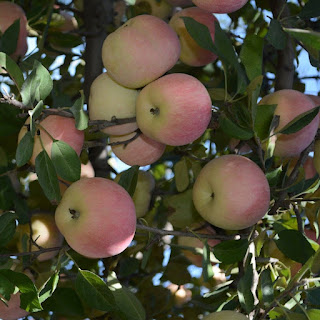Spanish Dagger
Spanish Dagger a Species of Yuccas
Common Name
Mound lilly
Spanish lilly
Palm lilly
Tree lilly
Mound yucca
Botanical Name
Yucca gloriosa
Information
Spanish dagger (Yucca gloriosa) is a flowering evergreen shrub that originated in the United States southeastern region. It naturally grows along sand dunes, but has become very popularly cultivated as a garden plant used for landscaping. Other names for spanish dagger are Roman candle, Lord's candlestick, and Sea Islands yucca.
Is spanish dagger poisonous to both dogs and cats?
While mild to humans, the toxicity of spanish dagger is quite dangerous to household animals, especially horses and livestock who forage. Never let your animals get into touch with spanish dagger.
Tips from Garden Coaches
A striking, architectural ornamental plant that requires very little in terms of care, the spanish dagger is a popular choice in both home gardens and public spaces.
Attract Birds
Native to hot and dry areas of America, spanish dagger come in almost 50 species, and are ideal if you want to create a bird-friendly garden in an arid climate. Species grown for their flowers, such as the Soaptree variety (Yucca gloriosa elata) or Adam’s needle (Yucca gloriosa filamentosa) are great for attracting hummingbirds, although orioles will also come to eat the nectar. Larger, tree-shaped species such as the Joshua tree (Yucca gloriosa filifera) are also used for shelter year-round, with some birds tearing long strips off the leaves to be used for nesting.
Ruby-throated hummingbird
Rufous hummingbird
Baltimore oriole
Name Story
Spanish dagger
As an ornamental plant, its white flowers are extremely beautiful and attractive. Despite that, the leaves are not inferior to flowers in any measure. The long and narrow leaves seem to be very hard, like Spanish bayonets and can easily injure anyone in contact.
Interesting Facts
This garden-worthy succulent plant demands special caution - the spines of Yucca gloriosa contain saponins, a soap-like compound. Although saponins have been used as a natural soap by Native Americans, these compounds can cause skin irritation and are considered toxic. Reportedly, some tribes used saponins as arrow-tip poison.
Symbolism
Protection, Purification, loyalty, new opportunities
Characteristics
Plant Type
Herb
Lifespan
Perennial
Bloom Time
Summer, Fall
Plant Height
1.6 to 6 feet
Spread
4 feet
Flower Size
Inflorescence 1.5 foot
Habitat
Sand dunes, Seacoast
Flower Color
WhiteCream
Leaf Color
GreenBlueYellowVariegated
Fruit Color
BrownRedGreenCopperBurgundy
Stem Color
GreenBlueBrownCream
Conditions Requirement
Difficulty Rating
Spanish dagger is super easy to take care of, with resistance to almost all pests and diseases. It is a perfect option for gardeners with brown thumbs.
Sunlight
Full sun, Partial sun
Hardiness
0 ℉
Hardiness Zones
6 to 11
Soil
Sand, Loam, Chalky, Clay, Acidic, Neutral, Alkaline
Care Guide
Water
Spanish dagger may be a drought-tolerant plant but it grows best with a regular watering schedule. When soil is dry, deeply water the plant up to 1 inch. Avoid over saturating or letting the plants sit in puddles of water to avoid fungal growth.
Fertilization
Fertilization once in spring.
Pruning
Trim the diseased, withered leaves once a month.
Planting Time
Spring, Fall
Harvest Time
Fall, Winter
Propagation
Cutting, Division, Sowing
Potting Suggestions
Needs excellent drainage in pots.
Pests and Diseases
Leaf spot disease; aphids, snails
Scientific classification
Genus
Yucca - Yuccas
Family
Asparagaceae - Asparagus
Order
Asparagales - Asparagus and allies, Agaves, orchids, irises, and allies
Class
Liliopsida - Monocotyledons, Monocots
Phylum
Tracheophyta - Vascular plants, Seed plants, Ferns, Tracheophytes.
Uses
Garden Use
The two-colored dagger-like leaves of spanish dagger (Yucca gloriosa) are an attractive and common feature of ornamental gardens, and its summer flowers and fruit attract birds. Spanish dagger makes a great addition to the beds and borders of Mediterranean, coastal, city, and cottage gardens. Grow this yucca with plants that bloom at similar times like sage, yarrow, and tiger lilies.




Comments
Post a Comment